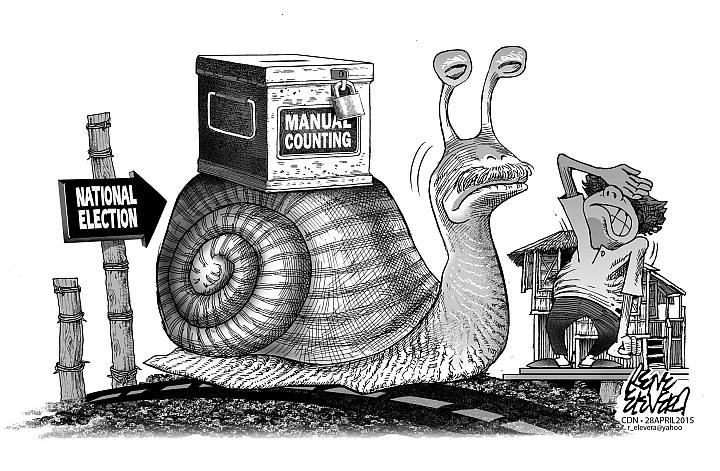
The prospect of manual counting in next year’s elections is a prospect not every Filipino wishes to entertain especially after they experienced what passes for automated voting in two past elections.
It wasn’t the end of automated elections when the Supreme Court voided an agreement between the Commission on Elections (Comelec) and Smartmatic TIM for a P200 million plus agreement to repair the Precinct Count Optical Scan (PCOS) machines.
The warning was issued by former Comelec chairman Sixto Brillantes, under whose watch the country first experienced automated elections in 2010 and 2013, days after the Supreme Court handed down its ruling.
In their decision, the High Tribunal said the Comelec failed to comply with requirements for direct contracting as stated under Republic Act 9184 or the General Procurement Reform Act (GPRA).
What is significant about the decision was that the Supreme Court specifically stated that the Comelec can still pursue direct contracting with Smartmatic provided that it meets such requirements of the GPRA.
The elections will be held in May which means the Comelec has at least one year to finalize its preparations for the 2016 elections. In Cebu, the Provincial Comelec office said they are more than ready to implement the manual tabulation of votes which old time politicians have been clamoring for two elections back.
In that case, the so-called Transparent and Credible Election System (TCRES) of former Comelec commissioner Augusto Lagman may be right up their alley. Under this system, teachers will tabulate the votes manually anew but this time, they will count the votes on the blackboard and encode it on laptops.
The laptops will be connected to a projector which will show the results on a screen and the results will be transmitted to the Provincial and National Board of Canvassers.
While Lagman said it’s not 100 percent fool-proof, it is more transparent than the PCOS. Brillantes, an election lawyer, said it will only give election lawyers more loopholes to pursue their client’s election protests.
Whethe it is PCOS machines or the TCRES, Filipino voters and the national government should by now disavow any return to manual counting of votes which is the most vulnerable to election rigging based on the country’s electoral history.
Critics and supporters of both the PCOS and TCRES have accused each other of being used by deep pocket politicians and election operators to manipulate the elections and these charges will only get buried in court. What’s very clear and important now is for the Comelec not to be compromised and for it to be allowed to pursue automated elections to ensure both transparency and speed, two factors crucial for clean, fair and honest elections.